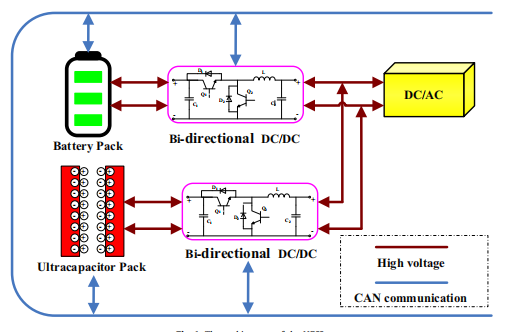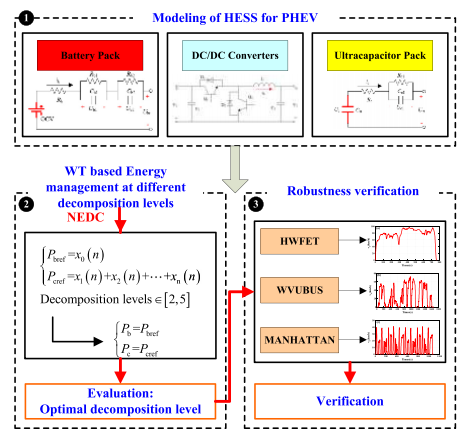|

| 摘要: A wavelet transform (WT)-based energy management strategy (EMS) is developed to reduce the damages caused by transient and peak power demands on batteries in plug-in hybrid electric vehicles. A hybrid energy storage system (HESS) consisting of a battery pack, an ultracapacitor pack and two DC/DC converters is established based on MATLAB/Simulink. The WT-based EMS with different decomposition levels is evaluated by using simulation under the New European Driving Cycle (NEDC). Comparison results show that the 3-decomposition-level based EMS is the optimal selection. The developed EMS is further evaluated by using simulation under three typical driving cycles including HWFET, WVUBUS and MANHATTAN. To validate the feasibility of the developed EMS, a hardware-in-the loop (HIL) test bench is constructed to simulate the EMS. The results indicate that the developed WT-based EMS with 3 decomposition levels achieves better accuracy performances. |
部分图片:
| | 
图1 The architecture of the HESS | 
图2 The verification procedure for the energy management. | 引文信息: Chun Wang, Rui Xiong, Hongwen He, et al. Comparison of decomposition levels for wavelet transform based energy management in a plug-in hybrid electric vehicle. 2019, 210:1085-1097. (下载链接) | 其他相关论文: 1. R. Xiong, H. Chen, C .Wang and F. Sun, “Towards a smarter hybrid energy storage system based on battery and ultracapacitor - a critical review on topology and energy management”, Journal of Cleaner Production, vol. 202, pp. 1228-1240, Nov 2018.(下载链接)
|
|